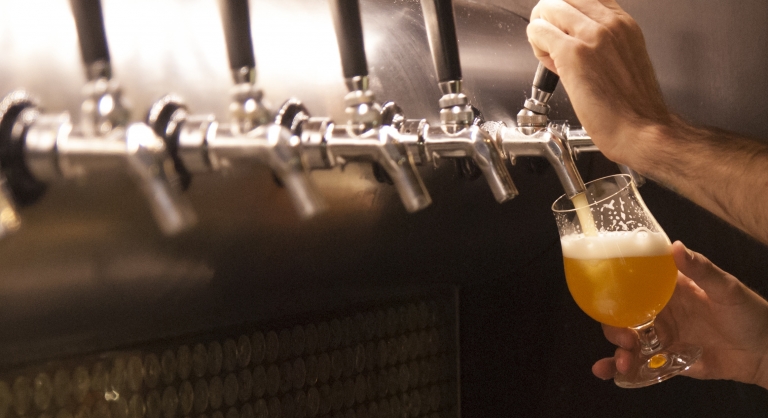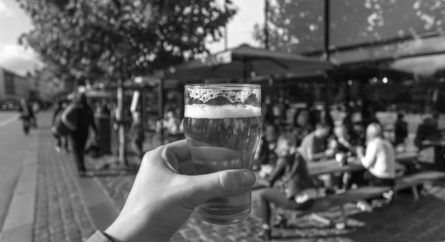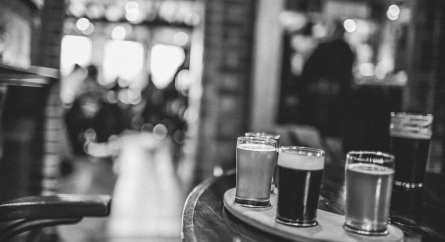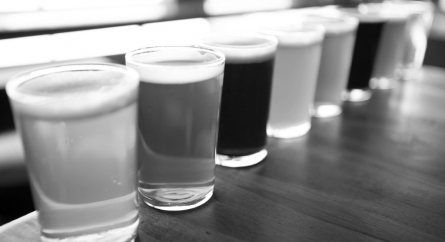Section 19H: On-Premises Consumption of Different Alcoholic Commodities in Massachusetts
Massachusetts farmer-breweries, farmer-distilleries and farmer-wineries seeking to diversify their offerings and attract new customers will often add new commodities to their existing operations. Under Massachusetts law, the sale and on-premises consumption of different commodities produced under M.G.L. c. 138, §19B (farmer-wineries), M.G.L. c. 138, §19C (farmer-breweries) and M.G.L. c. 138, §19E (farmer-distilleries) within the same premises are permitted only pursuant to M.G.L. c. 138, §19H.
M.G.L. c. 138, §19H provides, in pertinent part, as follows:
“[A]ny person that holds any combination of a farmer-winery license under [M.G.L. c. 138, §19B], a farmer-brewery license under [M.G.L. c. 138, §19C] or a farmer-distillery license under [M.G.L. c. 138, §19E], may be granted a license under [M.G.L. c. 138, §19H] to sell, for on-premises consumption, any alcoholic beverages produced by its said section 19B, 19C or 19E license or produced for the said section 19B, 19C or 19E licensee and sold under the licensee’s brand name, or any of its premises licensed under said section 19B, 19C or 19E, and on the grounds of the farm operated as appurtenant and contiguous to, and in conjunction with, such premises, provided however that these premises are operated appurtenant and contiguous to each other.”
An applicant seeking to serve one or more new commodities on premises pursuant to M.G.L. c. 138, §19H must first obtain the necessary federal, state and local permits, licenses and approvals for the new commodities. For example, if a farmer-brewery desired to produce and sell distilled spirits pursuant to M.G.L. c. 138, §19E for on and off-premises consumption and its entire building was licensed as a farmer-brewery under M.G.L. c. 138, §19C, the farmer-brewery would need to apply to the Alcohol Tobacco Tax and Trade Bureau (“TTB”) to amend its federal brewer’s notice to exclude the proposed farmer-distillery premises to be licensed under M.G.L. c. 138, §19E. The farmer-brewery would also need to apply to the TTB for a federal distilled spirits plant permit. Once the farmer-brewery’s brewer’s notice has been amended and the federal distilled spirits plant has been approved by the TTB, the farmer-brewery would apply to the Massachusetts Alcoholic Beverages Control Commission (“ABCC”) to amend its farmer-brewery license under M.G.L. c. 138, §19C to exclude the proposed farmer-distillery premises to be licensed under M.G.L. c. 138, §19E and apply to the ABCC for a new farmer-distillery license under M.G.L. c. 138, §19E. Once the amended and new state licenses have been approved by the ABCC, the farmer-brewery would apply to the local licensing authority (e.g., Select Board or License Commission) for: (i) an alteration of the farmer-brewery pouring permit premises licensed under M.G.L. c. 138, §19C(n) to exclude the farmer-distillery premises licensed under M.G.L. c. 138, §19E; (ii) a new farmer-distillery pouring permit pursuant to M.G.L. c. 138, §19E(o) for the sale and on-premises consumption of distilled spirits; and (iii) an alteration of the farmer-brewery pouring permit premises licensed under M.G.L. c. 138, §19C(n) pursuant to M.G.L. c. 138, §19H to add the new farmer-distillery pouring permit premises licensed under M.G.L. c. 138, §19E(o). Once these applications are approved by the local licensing authority and the ABCC, the farmer-brewery would be able to sell any malt beverages and distilled spirits produced by or for the farmer-brewery in accordance with applicable law throughout the licensed pouring permit premises pursuant to M.G.L. c. 138, §19H or on any adjacent farmland provided such land is appurtenant and contiguous (i.e., on the same property).
The applications for each of the above federal, state and local permits, licenses and approvals are subject to extensive federal and state laws and regulations. If you have any questions or require assistance, please contact one of our attorneys. We have assisted farmer-breweries, farmer-distilleries and farmer-wineries with this process throughout Massachusetts.
Categorized: Beer Laws, Liquor Laws
Tagged In: farmer-breweries, farmer-distilleries, farmer-wineries, liquor license, liquor permit












